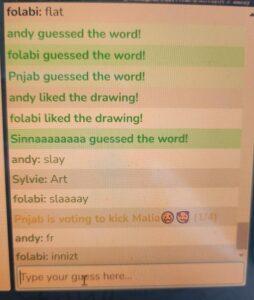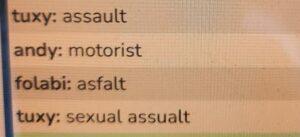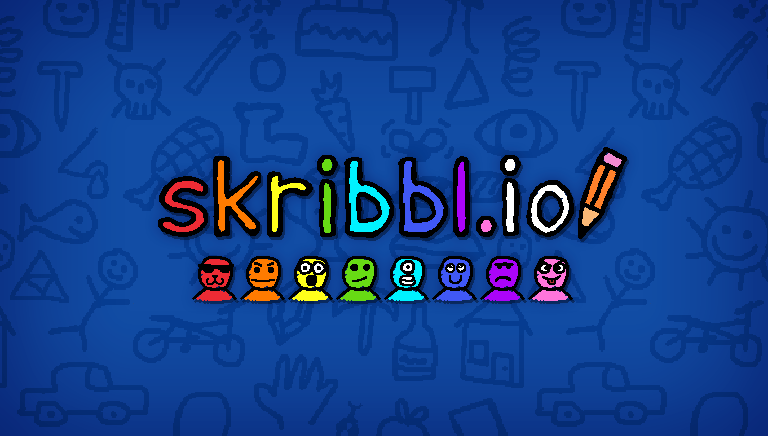Skribbl.io is an online judging game similar to Pictionary. It was developed and published by ticedev and is aimed at a very expansive audience of pretty much everyone who can read. Since its publication date in 2017 it has expanded from web to mobile and has continued to add new languages to play in.
In Skribbl.io, multiple other mechanics are in place to emphasize the judging mechanic. While the game works more similarly to Pictionary than Cards against Humanity, the judging mechanic is often just as important as the guessing mechanic in the impact it has on inter-player dynamics.
I played the game online, with strangers. I did not have any idea what ages they were or how much knowledge of English they had. There are multiple ways in which judging is emphasized in the game. First, there is a mechanic of liking/disliking a specific drawing (seen below).

This mechanic was often used to praise good drawings, which seems to be what it was designed for. More interestingly, it was not really used to downvote “bad” drawings. In my experience the downvote was used exclusively on people who were not following the rules by writing the word on the screen instead of drawing it. It seems that the more important question is when is the judging mechanic used at all? This particular mechanic is not technically pivotal to the game, but it does exist, so it was designed for a reason.
When first entering a game, it does not seem like judging or player interaction is the goal. From the 8 types of fun perspective, Skribbl.io fosters submission through the way that the end of the game is designed. After a player joins a game, which can happen in the middle of the game, and plays 3 rounds, the game ends. After a very short “cut scene” of the leaderboard (about 10 seconds) where players can congratulate each other, a new game with the same players starts immediately. There is no screen asking players if they would like to play again. The default of the game is that players will want to play the game again with the same cohort. This makes it easy to fall into submission, players don’t have to make any decisions. Another effect of this mechanic is that it builds fellowship between players. Complete strangers start making inside jokes, the chat starts to be used for more than guessing. The building of fellowship is what enables players to actually use the judging mechanic. So, we see players default to the next game with the same players.
I ended playing 5 games in which 4 of the 8 players remained for the entirety of the 5 games. In the first 2 games, the chat was used merely for guesses. In the next 3 games, the upvote and downvotes started to be used much more, and the chat was full of compliments and insults.
Game 4 chat and voting being used: (my apologies for the photo of a computer screen, my laptop was acting up)


One critique I have of the mechanics of this game is the lack of moderation of the chat. Although the chat is what enables judging to become a meaningful mechanic in the game and creates fellowship between players, it also has the side effect of creating some really negative dynamics. This is true of any chat feature, so it is unsurprising that it happened here. However, many chat features also include moderation or some form or censorship. Otherwise, like in the case here, bullying, trolling and disgusting behavior can easily arise. The lack of moderation is especially unfortunate because of the expansive target audience of the game. Children are definitely present and there is some responsibility that creators need to take when there is an open chat feature. The chat makes sense, it does its job, it creates inside jokes and helps players positively interact with each other. Unfortunately, it also leads to messages like these: (again my apologies for the pictures, I will fix it for the next submission)







